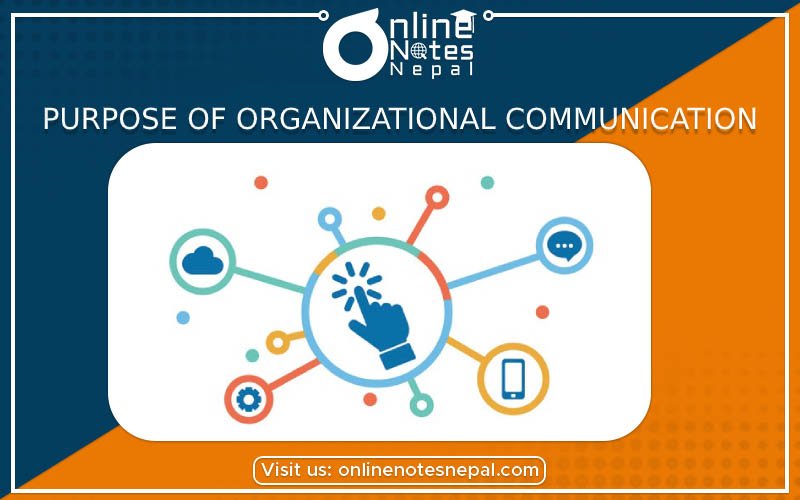Published by: sadikshya
Published date: 01 Jun 2021

Communication is simply the act of transferring information from one place, person or group to another. Every communication involves (at least) one sender, a message, and a recipient. The purpose of organizational communication are explained below:-
1. Information Sharing
Organizations share information with their employees and outsiders. Communication facilitates this process of information dissemination. In the absence of communication, the flow of communication would get disrupted.
2. Problem-solving
Organizational problems are solved when there is effective communication between all the members of the organization. Group efforts are also important for problem-solving and meetings like brainstorming and triggered groups are held to identify and find solutions.
3. Decision making
Communication facilitates organizational decision-making. Free flow of information is required to keep the people involved in decision-making aware of reality. The process of decision making can be done only after effective information.
4. Strategy implementation
Organizational strategies can be implemented effectively when the employees involved in implementation understand the basic purpose behind these strategies. All the purposes of strategies should be communicated well.
5. Team management
These days the organization is using team-based management systems and without proper communication, teams cannot function effectively. There must be a free exchange of information, ideas, and views that are at the center of team management.
6. Organization change and development
The employees can be prepared for organizational change and development through training and education. These things are possible only through proper communication.
7. Evaluation and control
Control function can be effective with information and communication. As the availability of critical information facilitates the monitoring and evaluating activities.
8. Feedback
Feedback is an essential requirement for effective management. The management has to receive information about work progress and employee performance. This process can be accomplished only when there is proper communication.